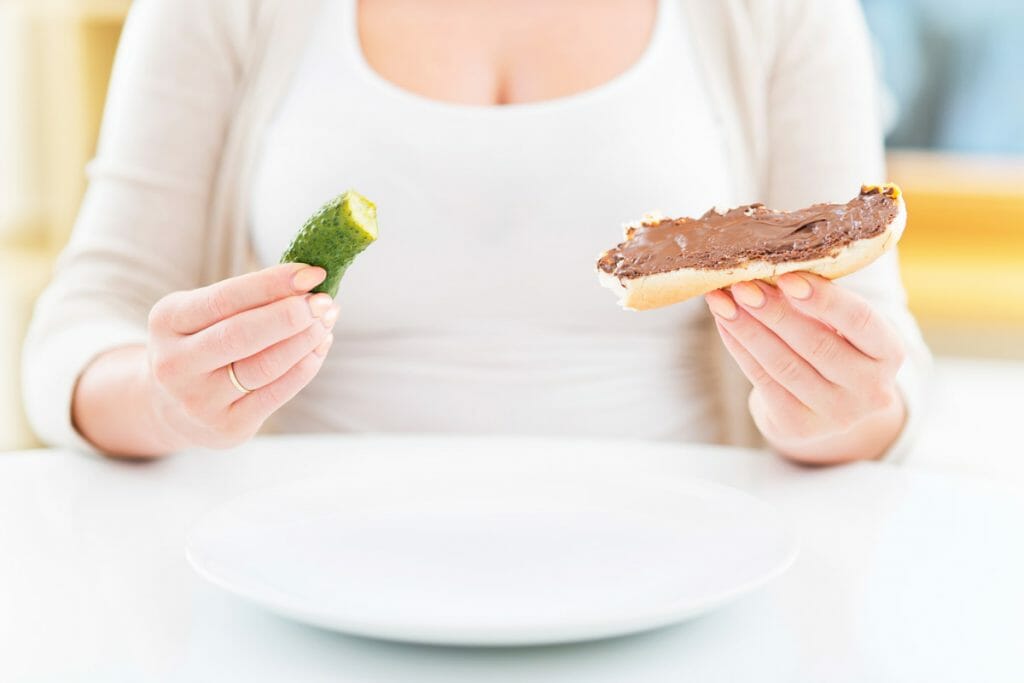Is Premenstrual Syndrome (PMS) Normal?

Premenstrual syndrome is something that many women and their family members are very familiar with. It’s unfortunate that over 80% of women go through unwanted mood changes, fatigue, and discomfort during this time of natural cleansing and renewal.
Some women have to take days off work, miss classes and social events, stay in bed, and take multiple doses of pain medication.
PMG definition:
A group of cyclical physical and emotional symptoms that occur 1 or 2 weeks before a woman’s period.
What are PMS symptoms?
Anxiety, depression, irritability, abdominal bloating, fatigue, increased cravings, breast soreness, headaches and migraines.
Believe it or not some women have positive experiences like:
Enhanced creativity and cognitive function, increased libido, a sense of overall happiness and wellbeing.
There are many options out there to help women during their menstrual cycles. Starting with the basics:
Women find that their symptoms reduce when:
They eat a whole foods diet with very little refined sugar and carbs, dairy and caffeine. They include essential fatty acids and from fish, fish oil, nuts, and seeds. They maintain an active exercise regimen with regular aerobic exercise. Incorporate stress management practices into their daily life.
How to deal with PMS:

Cravings
Studies show that women who suffer from PMS tend to have worse dietary habits than average women who don’t suffer from PMS.
PMS sufferers have been found to eat 62% more refined carbohydrates and 275% more refined sugar!
These dietary habits can exacerbate symptoms, increase weight, bloating, and water retention.
How does this happen?!
When you eat sugar it gets absorbed into your bloodstream. When this happens your pancreas releases insulin.
This spike in insulin causes salt and water to stay in the body causing swelling in breast tissue, extremities, and your abdomen (bloating).
Tip: To reduce this, eat more fiber from whole grains. Fiber has been shown to slow the insulin surge that happens after you eat sugar.
Mood Changes
Your hormones go through an intricate dance every month that not only involves sex hormones and organs but also neurotransmitters (Serotonin and Dopamine) and brain activity.
This is why some women have mood changes and emotional fluctuations during this time.

One theory states that serotonin levels drop during the second part of your menstrual cycle, inducing sugar cravings.
High sugar foods lead to the production of Tryptophan- the precursor to Serotonin.
Once you have the building blocks for serotonin in your system, it can lead to improved mood and energy.
This may explain why SSRI’s (antidepressants) are given to menstruating women.
Tip: Vitamin B6 and magnesium have been shown to help reduce mood symptoms of PMS. Discuss proper dosing with a qualified medical practitioner when supplementing. Natural sources of Vitamin B6 are found in fatty fish, eggs, spinach, sweet potatoes, and avocados; and Magnesium from nuts, beans, bananas, dark chocolate, and whole grains.
Menstrual Pain
Have you ever heard of prostaglandins??
Prostaglandins are compounds that can have hormone-like effects on the body. Depending on the type of prostaglandin, they can create more inflammation or have an anti-inflammatory effect on the body. When we consume diets that are high in sugar, white flour, or vegetable oils, we can increase the levels of inflammatory prostaglandins creating more pain when it comes to menstruation.
Tip: Essential fatty acids that come from fatty fish or fish oil can help to promote anti-inflammatory prostaglandin pathways and provide EPA and DHA to help support your brain and heart.
DUTCH Hormone Testing:
Comprehensive hormone testing can help you discover why you have these unwanted symptoms of PMS. Are you estrogen dominant? Do you have low progesterone? Are you clearing estrogen effectively? These are all questions that can be answered by the DUTCH test. Investigating estrogen metabolism is something that can’t be done by blood testing. These areas of hormones testing are often left out and overlooked.
Click here for more information on DUTCH testing.
You have many options when it comes to investigating and treating your PMS symptoms. Speak with your naturopathic doctor about what you can do about your unwanted PMS symptoms.
